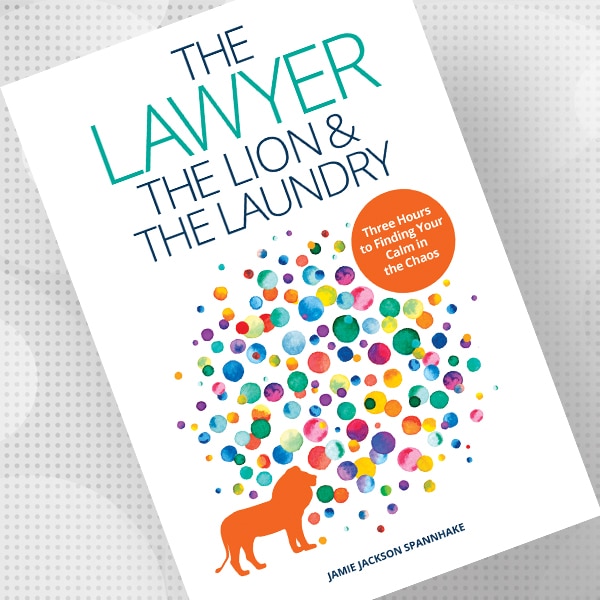We all know the phrase “everything works out for the best.” It’s uttered after disappointment or loss, to encourage, comfort or add meaning to something that didn’t go as planned. But it always rubs me the wrong way. I find the phrase overly simplistic and inaccurate. Because there’s a difference between things working out and things working out for the best.

Table of contents
- How Do We Know It’s ‘for the Best’?
- 1. Reframe: Turning Setbacks into Strategy
- 2. Growth After the Fall: Finding Strength Through Struggle
- 3. Ancient Wisdom: Using Perspective as a Tool
- 4. Narrative Power: Making Your Story Work for You
- 5. Optimism in Action: Believing—and Acting—as If It Will Work Out
- So, Does Everything Work Out for the Best?
How Do We Know It’s ‘for the Best’?
In the end, it’s the only option — the actual way things turned out. Yes, it “worked out” because life keeps moving. We adapt to the change, however problematic or unwanted. But that doesn’t mean the outcome is ideal, or “the best,” or even good.
So, I did a little searching to see if this phrase is true or even useful. Turns out there are compelling reasons, grounded in psychology, philosophy and life experience, not to dismiss this not-quite-true phrase entirely.
Here are five reasons the mindset underlying the phrase “everything works out for the best” is worth considering.
1. Reframe: Turning Setbacks into Strategy
Things don’t always go according to plan in life or work. A negotiation falls apart, a witness performs poorly, a role you thought was yours goes to someone else, or an opportunity fizzles. But how we frame those moments makes a difference. Reframing means choosing to see a detour not as a failure but as redirection — or, at the very least, information.
Psychologically, this isn’t denial. It’s resilience. It’s based on the idea that our thoughts shape how we experience events — and shifting those thoughts can help us bounce back more quickly and intentionally. In our careers, where precision and performance matter, this can be a powerful tool: the ability to step back and ask, “What now?” instead of only asking, “Why didn’t it work?”
That shift might not mean it worked out for the best. But it might mean it’s not over — and that something worthwhile can still come next.
2. Growth After the Fall: Finding Strength Through Struggle
There’s a well-documented concept in psychology known as post-traumatic growth. It’s the idea that people who experience hardship often report deeper clarity, stronger relationships, or renewed purpose in its aftermath. That doesn’t make the hardship good. It just means that something good can come from it.
In our legal careers, where burnout, job pivots and life interruptions are more common than we like to admit, this idea is worth holding onto. A failed bid for partnership might be what redirects you to a more values-aligned practice. A personal crisis may lead to more sustainable boundaries.
Growth doesn’t always announce itself in real time — but it often appears in hindsight.
So no, not every painful experience works out for the best. But many of them still lead to better outcomes than staying stuck.
3. Ancient Wisdom: Using Perspective as a Tool
Long before therapy and executive coaching, philosophers grappled with the unpredictability of life, considering that we can’t control what happens, but we can control our response. Philosophy also offers that good and bad often overlap so we can’t always know, in the moment, whether something is going to be positive or negative. Personal growth requires us to tolerate uncertainty. And that means leaving space for the possibility that what feels like a loss today might ultimately become an advantage later on.
It doesn’t guarantee things will work out for the best. But it keeps us open to the idea that meaning takes time — and perspective.
4. Narrative Power: Making Your Story Work for You
Many of us understand the power of narrative. We build a litigation or negotiation strategy, structure an argument, tell a story that persuades. Those same skills apply to our personal life too. People who craft a personal narrative that includes stories where struggle leads to insight and strength have better mental health and greater resilience. It’s not about fiction. It’s about making meaning. When a job, relationship or season of life ends, you can frame it as the end, or as wasted time — or as the beginning of something possibly new, wonderful and better.
Your story may not have gone the way you wanted. It may not have turned out for the best. But you still get to decide what kind of story you’re telling.
5. Optimism in Action: Believing—and Acting—as If It Will Work Out
Finally, there’s the practical side of optimism. People who believe that things can work out tend to stay in motion: they try again, ask again, build again. That momentum often creates the very outcomes others think are “luck.”
Optimism isn’t naïve. It’s a decision to keep moving in the face of uncertainty. Don’t let setbacks shift into stagnation. Instead, stay in motion and you keep yourself in a position to notice, respond to and shape what comes next.
Will it be the best? Maybe or maybe not. But it could be something better.
So, Does Everything Work Out for the Best?
Not always. Not in the way you planned. And not in the way you might have chosen. But even if it doesn’t lead to some perfect ending, the mindset that allows you to keep going, stay open, and find meaning in change — that’s powerful. That’s worth holding on to.
There’s a difference between things working out and things working out for the best. As long as we’re living, growing, and showing up — we are working things out. That’s progress.
Maybe it’s not about whether everything works out for the best. Maybe it’s about believing that things will work out and that we can use what life gives us to make something worthwhile.
Image © iStockPhoto.com.

Sign up for Attorney at Work’s daily practice tips newsletter here and subscribe to our podcast, Attorney at Work Today.

Three Hours to Finding Your Calm in the Chaos
BESTSELLER! THE LAWYER, THE LION & THE LAUNDRY
Join lawyer and certified health coach Jamie Jackson Spannhake in an enlightening journey. Read her bestselling book and learn how to “choose, act and think” in ways that will clarify your desires and set priorities so you can reclaim your time and enjoy your life. Includes exercises.
















